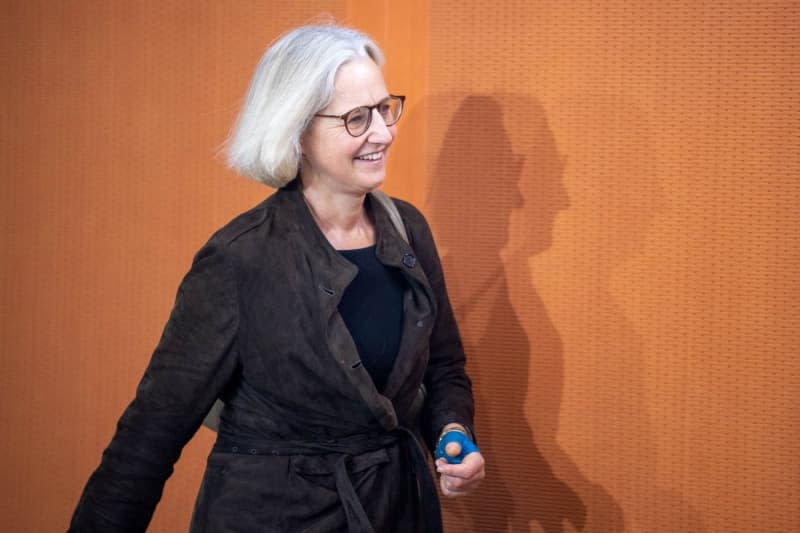Berlin reticent about new EU air defence initiative

Germany on Friday gave a cautious reaction to a Polish-Greek proposal for a new European air defence shield.
The initiative had been noted, said government spokeswoman Christiane Hoffmann, while referring to an existing German project to strengthen Europe's defence from aerial attack.
Twenty-one countries are involved in the European Sky Shield Initiative (ESSI) devised after Russia's full-scale invasion of Ukraine in 2022 and intended to close gaps in NATO's defence shield for Europe.
For example, there are plans to jointly place orders for air-defence technology with the defence industry.
However, Poland and Greece on Thursday submitted an alternative concept for a broad defence shield to the EU leadership.
In a letter to European Commission President Ursula von der Leyen, Polish Prime Minister Donald Tusk and Prime Minister Kyriakos Mitsotakis of Greece wrote that a programme is needed to strengthen the EU's overall defence capabilities.
It should also encourage European defence companies to develop cutting-edge technologies and become world leaders in their fields.
Developing and funding a comprehensive system to protect EU airspace could send a clear signal that Europe is united and determined to protect itself, the two leaders said.
They also described the EU's current air-defence capabilities as a "major weakness" in the bloc's security.
The new air-defence system could serve as a shield for citizens and armed forces if deterrence fails, they wrote in the letter, which was made available to dpa.
It made no mention of the NATO and the German initiative. The two heads of government now want their initiative to be discussed at the next regular EU summit in June.
French President Emmanuel Macron could be a potential key supporter. France has not yet joined the German project because it also favours the acquisition of non-European military technology, for example, US Patriot air-defence missile systems.
A German Defence Ministry spokesman said on Friday that if the EU wanted to contribute to strengthening Europe's air defence, including by through financial support, this would be "more than welcome."

